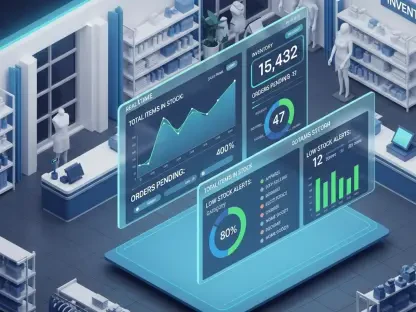There is no question about the fact that inflation comes with a wide variety of undesirable effects on the global economy. This year, inflation is affecting the US economy as well as other economies around the world, as it continues to be propelled by important global issues, such as the COVID-19 pandemic and the ongoing conflict in Ukraine. In fact, the annual inflation rate in the US has recently peaked at 9.1%—the highest level since 1981—causing problems in numerous industries, including retail.
Energy prices grew 41.6% in June 2022—the largest increase since 1980. The massive surge was fueled by a general upward trend with gasoline, fuel oil, electricity, and natural gas prices all increasing. The cost of food and shelter has also increased dramatically in June, making it harder for consumers to purchase goods and services. However, American consumers are not alone in dealing with the negative effects of inflation, as it hurts both the consumers and the economy.
Inflation can be seen as an effect of the pandemic, and might ease as the consequences of the healthcare crisis subside and issues like the geopolitical crisis in Ukraine are met with effective solutions. But what does this mean for retail?
Why Did Walmart Shares Fall?
According to CNBC, Walmart shares dropped after the retailer reduced its profit expectations as a consequence of mounting inflation concerns. Inflation now drives US consumers to allocate more money to food and shelter, making them spend less on electronics, clothing, and other personal items. This, in turn, leaves US retailers with more stock clogging their warehouses, and it also forces them to drastically reduce prices for less desirable items to boost sales. For Walmart, inflation is an important issue, as the company’s stock fell more than 8%.
However, Walmart CEO Doug McMillon recently said that the company is expecting good results for its back-to-school sales, although it is predicted that consumers will refrain from buying general merchandise during the second half of 2022. “The increasing levels of food and fuel inflation are affecting how customers spend, and while we’ve made good progress clearing hardline categories, apparel in Walmart U.S. is requiring more markdown dollars,” he added. Walmart’s predictions, as well as similar statements made by officials from Target and Amazon, can be read as a foreshadowing of what may well be a bleak holiday shopping season.
Dealing with Inflation
Retailers are not alone in trying to come up with the best solutions to deal with inflation. Numerous economists and policymakers around the world are doing their best to provide effective measures to counter these effects, and to prevent a future recession. According to a recent statement by Cecilia Rouse, Chair of the Council of Economic Advisers, tackling inflation is now President Biden’s number one economic priority—along with preserving a solid economy and labor market. While Rouse admits that inflation remains too high, she also points out that gas prices have already started to decline.
Moreover, other positive signs regarding the future of retail have emerged. According to Reuters, US retail sales rebounded in June because US consumers spent more on gas and other items despite inflation. Even though this news alleviates growing concerns about an imminent recession, it does not change the fact that the American economy is still facing significant pressures.
These challenges are likely to increase during the second quarter of 2022, and retailers are expected to encounter various threats. However, the American consumer might once again prove to be one of the greatest assets of the US economy—and with back-to-school and holiday sales ahead, obstacles could become opportunities.









